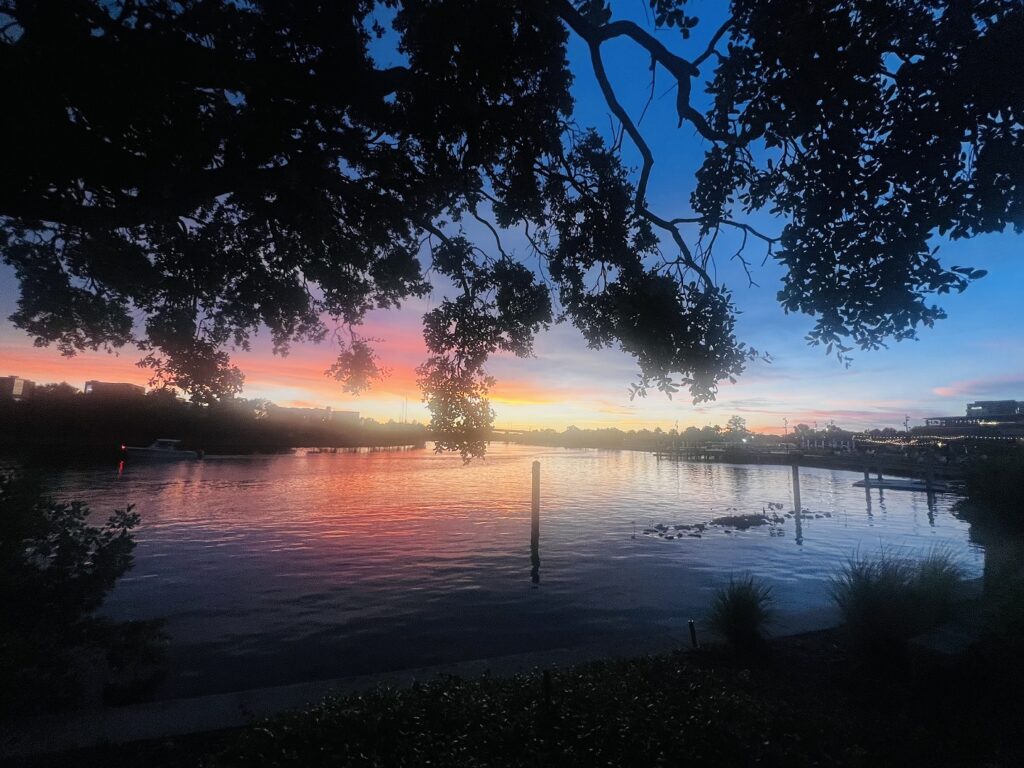The first time I told a doctor about the weight on my chest, she didn’t ask if it felt like wet sandbags or a sleeping child or the ghost of every goodbye I’d ever swallowed. She typed two words: “Anxiety,” “Xanax.”
The therapist asked if I had considered medication for the anxiety. I wanted to say, “No, I was struggling with transitions, I am grappling with the silence where my language used to be.”
When I first moved away from home, I didn’t cry, not in the way people expected. My sadness didn’t come in “panic attacks or depressive episodes.” It came when standing in the grocery aisle, staring at spices I didn’t know how to use. In the way my hands would hover over the phone at 3am, aching to call someone who was already asleep seven time zones away. My laughter felt like wearing shoes two sizes too big. We don’t have a word for this in English, but other languages do. In Welsh Gaelic, Hiraeth: it’s homesickness for a home you cannot return to. In Romanian it’s Dor, the pain of wanting something so deeply it feels like a knife turning in your chest. Toska (in Russian) is a dull ache of the soul, a longing with nothing to long for. Éadromchroíoch (Irish Gaelic) is, literally, “light-hearted,” the bittersweet joy of remembering what you’ve left.

Language matters. I tried to explain this once to my peers, how the longing for a place can live in your bones. But it’s hard for another to understand the feeling, especially one they know nothing about.
In the emergency room last year, a nurse scanned my chart and asked, “Rate your depression from one to ten.” Medical diagnosis is all about measures, right? I considered the work of Stephen Jay Gould, a paleontologist, evolutionary biologist and science historian. In The Mismeasure of Man, Gould challenged the myth that objective measurement alone captures truth, arguing that such frameworks often erase nuance, especially in human experiences. The author’s idea of ‘objective’ metrics extends to psychiatry, in how my pain became a psychiatric scale, and not a story to be heard. When metrics subsume lived experience, pain becomes data points rather than an experience. It’s forcing lived experience into quantifications.
I wanted to tell the nurse that numbers couldn’t capture how it felt to miss a self I had left behind. Instead, I whispered, “Seven,” and watched him check a box that reduced my emotional states to checkboxes.
My response, seven, was a surrender to psychologist David Ingleby’s critique of the mythology of psychiatry and its power. His discussion about the medical model’s tyranny captures how my homesickness becomes pathology, and embodied memories are labeled as dissociative symptoms. When I was asked if I was hearing voices, I didn’t know how to explain that it wasn’t voices, but memories, voices of my past, voices I missed. As Luhrmann noted in Of Two Minds: An Anthropologist Looks at American Psychiatry, “Psychiatric knowledge seeps into popular culture like the dye from a red shirt in hot water; the way we understand these illnesses affects not only the way they are treated but the way they are experienced, their outcomes, and our sense of responsibility toward those who suffer.”
My loneliness didn’t disappear, it became familiar; a companion that spoke my mother tongue. Some days it sits at my table, drinking tea from the handcrafted stoneware pottery cup my best friend gave me when we were eighteen. So, I knew what it was, the silent vocabulary of a body that remembers too much, lingering like perfume on a discarded sweater. This wasn’t a diagnosable condition. It was love, stretched across oceans, my heart learning to beat in two places at once.
A few days later, my aunt came visiting, took one look at me that winter and said, “Ọmọ rẹ, ọkhẹ rẹ yẹ ẹwẹn ẹgbee” (spoken in Edo language by the Benin people in Nigeria) meaning “My daughter, your heart is a house with too many windows.” She offered to make a powerful healing drink for calming, soothing the mind, and boosting overall wellness. Boiling some bitterleaf, cinnamon, clove and ginger mixed in a pot filled the kitchen with a smell that unknotted something behind my ribs. “This is for the cold that gets in because of distance,” she said. Not a diagnosis; an offering! But here’s what I wrote later in my journal: “Today, the weight of loneliness is like an old coat draped over the chair, too familiar to hang up, too heavy to wear.”
Some nights, my body would become a library of lost translations. I sat still in my balcony sipping my aunt’s herbal infusion tea and let the silence between my reality mean something other than absence, letting the steam curl into the space between my ribs and the ache. People sometimes ask, can you even put what you feel into words? In psychological vocabulary, what I feel might fall under the rubric of coping mechanisms. But it’s more like teaching my bones a language older than diagnosis. I felt that clinical language gave me a label, but it was my own half-scribbled metaphors that taught me how to live with it.
There was a night last November when I felt the clinical words stopped working entirely. I remember curling up on the bathroom floor, the tiles cold against my cheek, chanting the only word that made sense: “Homesick, Homesick, Homesick.” Not for a place, but for a version of myself I couldn’t reach. The Emergency Room doctor would probably call it a panic attack with dissociative features or an adjustment disorder. My body and my flesh called it something else, something different. It felt like a combination of several things. Instead of the clinical terms social isolation or depression, or appetite changes, I would call it the sacred space between languages where I could finally hear myself think. The loss of appetite as my body’s rebellion against food that didn’t taste like memory of home. Clinically, I assume that sounds like a prescription for lorazepam or fluoxetine, but I knew exactly what I felt; I just didn’t have the clinical vocabulary for the ache of missing home love.
I thought about the rasp of my parents’ soft cheeks against mine when they whispered “Deboroski” (my pet name) before I slept. The aroma in the household from the caraway and onion from dinner soup, that peppery warmth seeping into the wallpaper, the wool blankets, and the pages of my books. It’s like the promise that no matter how cold it gets outside, there will always be this: a steaming bowl and someone to share it with. Neuroscientists have shown that smell is the sense most tightly wired to memory which explains why, when I chop onions in my too-quiet kitchen, I close my eyes and pretend the sting is from home cooking, not loneliness.
Savoring these precious missed moments, I came up with a Recipe for When the Words Run Out:
Ingredients:
One quiet afternoon by the water (where thoughts can float)
A handful of all the metaphors you can find (even if they’re not perfect)
One blank notebook ready to be splattered with thoughts and ink
Permission to feel things that don’t have names
Instructions:
Sit by the shore until your thoughts unspool like loose thread.
Gather your imperfect metaphors like wild herbs. Don’t worry if they’re bruised or mismatched.
Open the notebook to a random page. Press your palm flat against the paper and let the ink bleed where it wants, some stains will taste better tomorrow.
Name the unnamed with your own words. If it still won’t fit into language, sketch its shape with a butter knife.
Serving Suggestion:
Share with others who taste life in textures rather than terms. The crumbs will nourish what clinical language starves.
Let’s get it straight, I am not oblivious or opposed to diagnosis, I’m just busy learning the alphabet of my own becoming. The first letter looks like a question mark curled around a seed. The last? A doorway no chart could ever measure. It’s the language of longing: how I speak the love that’s missing. There is a kind of hunger that doesn’t appear in medical charts; the taste of home that no diagnosis can name. My feelings didn’t need measures or a diagnosis. It needed the smell of “shayi” brewing at dawn, made from fresh ginger, peppermint leaves, cloves, and cinnamon sticks, sweetened to taste with honey, just the way my parents used to make it. The sound of my childhood best friend’s voice saying, “Eat something, my friend, you look too thin,” or the weight of my little niece falling asleep on my shoulder after a warm bath. I didn’t need a drug for this. I needed a way to explain why not hearing my language in public makes my ribs ache.
What the system misses is that not every feeling can be measured and diagnosed in clinical terms. For example, I see social withdrawal like the unbearable lightness of small talk when your heart lives elsewhere. Low energy is like the weight of carrying a ghost country in your lungs. Does that mean we sometimes grieve in the wrong language? Although there are codes in the Diagnostic and Statistical Manual of Mental Disorders (DSM), they have little to do with the felt experience of how my accent slips when I’m tired or the way I flinch when someone mispronounces my name. The way my hands still yearn for spices that aren’t in the international aisle in the grocery store.
If only they knew how to ask, maybe an alternative assessment question would work. Questions like “What does homesickness smell like to you?” I would answer that mine smells like jasmine tea and diesel fumes, the scent of my old bus stop. When was the last time you felt understood without translation? For me, it was the barista who recognized my hesitation before ordering and said, “You miss the way coffee tastes back home, don’t you?”
In addition to my recipe, this is my Survival Guide for the homesick heart. I keep a dictionary of translatable words in my local dialect, writing down the ones that almost fit:
Ọmwan rhuẹ – That ache when you crave your mother’s voice more than food.
Ẹdọ ayemwen – The sound of heavy downpour on zinc roofs, still drumming in my dreams.
Ugboko mwen, Ọrhionmwen – My roots, my joy, sweet belonging.
All these I match with my playlist of home songs of voices I miss. I dance to the music no one else recognizes, cook a meal that takes all day just to smell it longer, ponder about a Benin spice I will hoard like a secret, let myself cry in the language I first learned to cry in. I just let my body speak its mother tongue. Longing is not something to medicate; it’s proof of what we’ve loved. It’s a part of cultural resilience. These lexicons are how we survive without being “fixed.” It’s a remembering that calls for gentler spaces, rooms where homesickness isn’t treated like a symptom but a meaningful story. A space for personal narratives, and the freedom to submit, for those who should desire it, to lexicons of longing.














